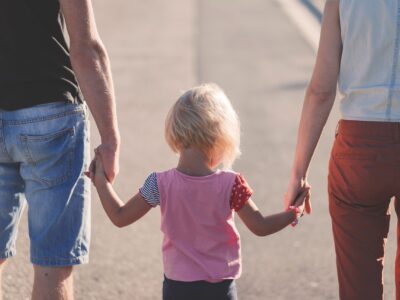Amid such grief, it may seem callous to look for immediate consolations, but over the last few months, there is a sense that, with the world having ground to a halt, we’ve had the time to reflect on the things that matter most.
For those of us lucky enough to have endured relatively unscathed, the crisis has pushed us to examine what we consider truly meaningful.
As we do our best to acclimatise to a new ‘normal’, we have begun to focus more on what unites us, brings us joy and keeps us going. There is the hope that we will emerge from pandemic as a kinder, more united society.
Despite the quite profound anguish, there is the sense that the world has in some paradoxical way shifted for the better. We’ve kept our distance, but have found ways to stay connected. We’ve been lonely and isolated, but have found unity in a shared struggle. We feel helpless, but there is the sense that we are in control of shaping what comes next.
As reported by The Guardian, there are already indicators that our collective goals are being reshaped. Despite the unprecedented damage to the economy and the promise of recession, a YouGov poll has discovered that the majority of Britons, 8 out of 10 in fact, would like ministers to prioritise health and wellbeing over GDP and economic growth. 60% of Britons would still want the government to pursue the quality of life ahead of growth after the pandemic ends.
For many of us, our worlds have become smaller and slower. Our long-term goals have been replaced with what is more immediately attainable, such as safety, security and wellbeing. Quality of life has become vital, and with that comes learning, building and growing. Or resting. Many of us are finding time for new books or old friends. Yeast, eggs and flour have been in high demand, and the kitchen table has once again become the centre of our homes. People are making more time to write, to call a friend or to send a birthday card. There is a boom in recipe sharing, online classes and reading groups. There’s even been time for dancing.
At the root of this pandemic is profound loss and sadness. The biggest paradox of all is that now more than ever, happiness takes priority.
In the past month, many of us have been galvanised by the national mood of kindness. From the selfless heroics of the NHS, unprecedented numbers of volunteers and fundraisers, to the efforts to house and feed our most vulnerable, the people’s response has been one of compassion.
On a localised level, pandemic seems to have taught us the importance of community. No sooner had lockdown been announced, social initiatives sprang up to rally around whole neighbourhoods. Charity and reaching out have become the norm and not the exception.
From letter-writing schemes for those in isolation, food parcels and supermarket trips, to online clubs for kids; there is an endless list of endearing and truly meaningful acts of kindness which has shaped the narrative of the last few weeks and months. It seems the sentiment behind loving thy neighbour is ringing truer than ever.
A shift in mindset also seems to have taken place. If this sense of community has proven anything, it’s that wellbeing isn’t just individual, but social. We have been reminded that we are not actually independent at all, but very much dependent. Recovery is collective and kindness is best when shared.
Dr Kelli Harding, assistant clinical professor of psychiatry at Columbia University, explained that “kindness is shown to boost the immune system, lower blood pressure and reduce our perception of pain. Repetitive acts of kindness also boost our mental health.”
It seems our small acts of kindness have allowed us to reclaim some of the control that was wrestled from us by pandemic, and this all happened on our doorstep. With our worlds now confined to a few streets at a time, we’re all in the process of making our doorsteps as beautiful as possible.
It’s true that we’re all missing the care, comfort and convenience of our routines, so have taken it upon ourselves to let more of that care in than ever before. People, despite their own hardship, have found time to be kind. We belong to a divided nation at the best of times, but there has been a sense that we really have all been in this together.
Whilst everybody’s hopes and dreams will look very different, there is the belief that compassion will be at the heart of what we can do next.
The Office for National Statistics’ Health and Wellbeing Survey, published on 22nd May, suggested that the pandemic was making us kinder as a nation, with 61% believing the country would emerge even kinder once the crisis was over.
As reported in The Conversation, Siobhan Freegard, of the ONS, said: “Despite the dreadful toll the pandemic is taking, people are becoming much more thankful for the small pleasures in life.”
The question is, how does this community goodwill translate into meaningful change?
It’s clear that we have become more engaged. ‘Business as usual’ will not be an option after the immediate crisis is over, but perhaps our newfound spirit of compassion will persist, and we can use this as a chance to address society’s inequalities. For the first time in a long time, that opportunity seems very real.
It is hopefully not too fanciful to believe that exceptional circumstances will continue to demand such an exceptional response.
ABL Recruitment team









